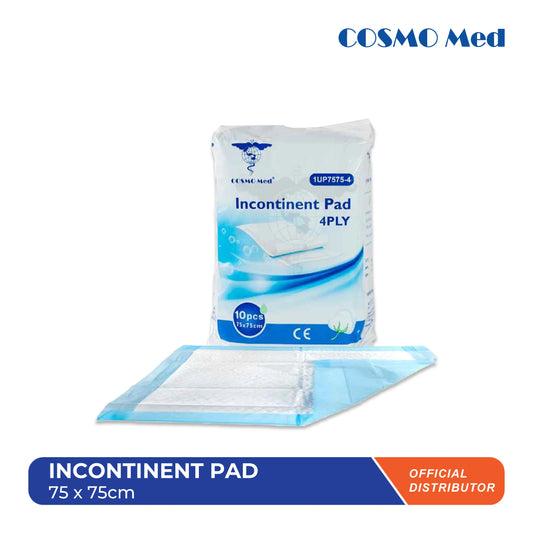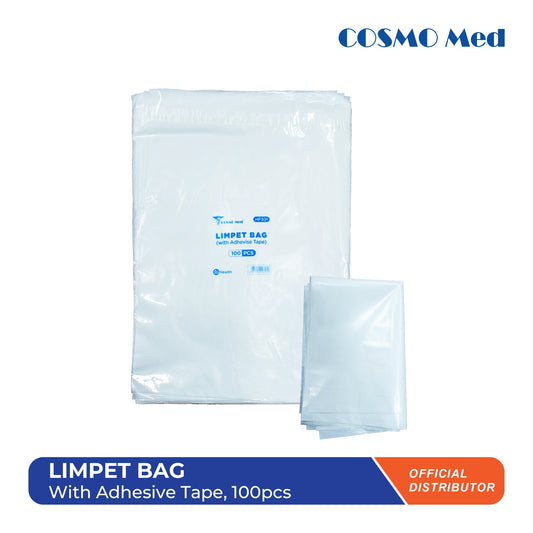Alcohol-Based Wipes

Alcohol wipes are pre-moistened towels saturated in a concentrated concentration of alcohol (usually isopropyl or ethyl alcohol). They usually have 60%–90% alcohol and have strong germ-killing power. With heavy application in medical and laboratory settings, due to their quick disinfecting abilities, the wipes are widely used.
The CDC recommends products containing at least 60% alcohol for effective disinfection. Alcohol kills bacteria and many viruses by breaking down their proteins and dissolving their protective membranes, causing the germs to die. Because of this, high-alcohol wipes actually disinfect surfaces (kill most germs completely) rather than just sanitize (which only reduces germs).
You’ll often find alcohol wipes handy for quickly disinfecting high-touch surfaces like doorknobs, shopping cart handles, phones, or medical equipment. They also dry rapidly and don't leave a residue, so there is no need to rinse after use.
Their effectiveness does have some warnings attached, however. If you have the package open for too long, the alcohol will slowly dry out – keep the lid on at all times to prevent potency loss and evaporation. Also remember that alcohol burns, so store alcohol wipes where there is no extreme heat or open flame.
Alcohol-Free Wipes

Alcohol-free wipes do not include ethanol or isopropanol. They have other cleaning and antimicrobial ingredients – for instance, some use quaternary ammonium compounds (such as benzalkonium chloride) or plant-based natural disinfectants.
They are formulated to be milder and safer for repeated use on skin and other surfaces. The majority of personal care wipes (baby wipes, face wipes, makeup remover wipes) fall in this group. These usually include mild detergents, moisturizers, and scents but no aggressive chemicals.
As they do not contain significant amounts of alcohol, alcohol-free wipes will sanitize but not disinfect. They are still capable of killing bacteria and viruses, but occasionally take a little more time to reach the germs and are not as strong in their effect against all types of germs as an alcohol wipe.
For instance, a common active ingredient is benzalkonium chloride (BZK) and although it does kill germs, it is not as broad-spectrum against viruses as alcohol – the CDC in fact points out alcohol sanitizers are stronger against a wider spectrum of germs than BZK-based ones.
Conversely, no-alcohol wipes are much gentler on the skin. They won't typically dry out your hands like repeated use of alcohol tends to do. This makes them safe to use for wiping skin (children's hands and faces, for instance) on a regular basis without irritating it.
They're also harmless on surfaces that alcohol might damage – you can use alcohol-free wipes on plastic toys, sealed wood, vinyl furniture, or electronic screens without worry. And since they contain no flammable liquids, they're not dangerous to light and can be kept in any location without risk. Do note that since they don't evaporate so quickly, surfaces may take a little longer to dry after wiping.
Also, plain cleaning wipes which are not alcohol-based (like baby wipes) aren't demonstrated to kill germs very well – the CDC warns that wipes with under 60% alcohol will only make your hands look clean, not actually disinfect. Briefly, alcohol-free wipes are ideal for regular cleaning and casual sanitizing, but if you want to blast through heavy-duty germ killing, you might need something stronger.
Pros and Cons of Alcohol Wipes
Pros :
- Instant and thorough disinfecting: They kill a broad spectrum of bacteria and most viruses instantly. So fast, they're great when you need to kill germs in a hurry.
- Rapid evaporation with no residue: Alcohol is a fast-evaporating solvent, so surfaces become clean and dry in a matter of seconds. No soapy residue left behind – just wipe and leave.
- Multi-purpose use: The wipes are extremely versatile. People apply them to sanitize high-touch spots (grocery cart handles, elevator buttons, door handles) and sterilize tiny gadgets or even clean electronics gently. They can be utilized as hand sanitizing wipes in a pinch, killing germs on your skin when soap and water are not an option.
- Non-corrosive and non-staining: Unlike bleach cleaners, alcohol will not rust metal surfaces and doesn't tend to stain plastics or cloth. You can count on alcohol wipes to clean grime or smudges without bleaching colors or destroying most materials.
- Often biodegradable fabric: The majority of brands nowadays make alcohol wipes from ecologically friendly, biodegradable non-woven fabric. These are more likely to break down when they are disposed of, which is not as bad for the environment as plastic fiber-containing wipes.
Cons :
- Dehydrates skin: Excessive use may strip your skin of its natural oils, leaving it dry or irritated. If you use too many alcohol wipes to clean your hands, you might find that your skin feels rough or cracks.
- Can damage certain surfaces: Alcohol can discolor or degrade sensitive materials. For example, it may dull some painted or varnished surfaces, weaken latex or rubber, and crack certain plastics or leathers with repeated use. It’s wise to spot-test if you’re unsure how a surface reacts to alcohol.
- Highly flammable: The alcoholic liquid content makes the wipes extremely flammable. You have to be careful handling them and keep them away from flame or sparks. (Don't use an alcohol wipe near a candle, stovetop, or BBQ grill!)
- Strong chemical smell: Alcohol wipes have a strong chemical odor that irritates some people. The odor will dissipate when it evaporates, but when in use, it is pungent.
- Not for open wounds: Don't apply alcohol wipes to broken skin, cuts or scrapes – the alcohol burns awfully and is damaging to tissue. They're only meant to be applied to intact skin or surfaces (use them to disinfect the area surrounding a wound, but don't apply them to the wound itself).
Pros and Cons of Non-Alcohol Wipes
Pros:
- Gentle on skin for frequent use: They are gentle in nature. They will not dry out or scald your hands even if you apply them multiple times a day. They are suitable for kids or anyone with delicate skin. You can wash a child's sticky hand or face using an alcohol-free wipe without hesitation.
- Safe on almost all surfaces: Non-alcohol wipes are generally safe for surfaces in general. They're okay to use to wipe screen devices, glasses, plastic toys, or finished wood – materials that might fog, crack, or get dull with alcohol are much safer when using non-alcohol formulas.
- Not flammable and easy to store: Without the alcohol, there's no risk of fire. You can simply toss a pack in your car or keep them in hot storage (like a summer trunk) without the safety concerns that alcohol products would present.
- Lighter scent (unscented): The majority of alcohol-free wipes have a very light, airy scent or absolutely no scent. You don't get to enjoy that strong alcohol smell; they are therefore more pleasant to use frequently, especially on your skin or if you are sensitive to odors.
- Suitable for everyday on-the-spot cleansing: They are quite easy to use for rapid cleaning when soap and water are not available. Use them to clean your face and hands after you've exercised, clean a public table or shopping cart, or wipe up a spill in your vehicle. They are a travel buddy for many – like using an antiseptic wipe to get sweat and odors off your body and feel cleaned up on a long drive.
Cons :
- Longer and not as effective germ kill: Without alcohol, the wipes generally take longer to be effective. They usually need a good 30 seconds or more of moist contact to actually reduce germs, whereas alcohol can disinfect in under 10 seconds. Even then, they may not kill all bacteria or viruses – some tough viruses (such as norovirus or poliovirus) might not be inactivated by regular "sanitizing" wipes either. Overall, they are good cleaners but not necessarily a real disinfectant unless they're a special product.
- Can still cause irritation or allergies: "Gentle" does not mean absolutely safe for everyone. Most alcohol-free wipes have chemicals (like fragrances, preservatives, or quats) that will irritate sensitive eyes or skin. If you have an allergy to any of the ingredients, you may experience redness or a rash from these wipes. It's a good idea to check the ingredients if you've developed sensitivities. (For that matter, using them on the face can occasionally cause clogging of pores or minor breakouts on some people.)
- Not suitable for heavy disinfection: For high-risk settings – like a hospital OR or in the case of a major outbreak – regular alcohol-free wipes may not cut it unless they're a medical-strength antiseptic. Many times, healthcare procedures still call for alcohol-based or bleach-based disinfectants for some purposes.
- Stay wet longer: Because they don't dry instantly, alcohol-free wipes can make surfaces wet for a little while. You might need to let the surface air-dry for half a minute or longer. This isn't a major downer, but it does make them a bit less convenient when you need something that'll dry instantly.
- Many are not biodegradable: A lot of alcohol-free wipes (particularly antibacterial ones) are made from synthetic plastic fibers and are not biodegradable. This means they contribute to landfill waste and environmental pollution if not properly disposed of. If sustainability is important to you, you’ll need to seek out specialty brands that advertise biodegradable alcohol-free wipes.
When to Apply Which Type

Different tasks call for different types of wipes. Here is a brief summary of typical tasks and what kind of wipe is typically best:
|
Task or Use Case |
Recommended Wipe Type |
|
Quick disinfection in hospitals |
Alcohol-based disinfectant wipe (high alcohol content for medical-grade germ kill). |
|
Cleaning children’s toys |
Alcohol-free wipe (gentle and non-toxic; no harsh chemicals on kids’ items). |
|
Sanitizing electronics (phones, keyboards) |
Alcohol-based wipe (light, careful use – alcohol evaporates quickly and won’t harm electronics if used sparingly). |
|
Frequent hand cleaning |
Alcohol-free hand wipes (gentler on skin for repeated use, with moisturizing ingredients). |
|
High-touch public surfaces (door handles, shopping carts) |
Alcohol-based wipe (for stronger, fast germ-killing action in public spaces). |
Which Is Better?
So, which type of wipe is “better” – alcohol-based or alcohol-free? The truth is, neither one is universally better; it depends on your needs and situation. Consider what you’re cleaning and why:
If you need most germ-killing power and speed – like disinfecting a surface during flu season or after a person who was ill – an alcohol-based wipe is likely your best option. The high concentration of alcohol will kill more germs and faster. Where tough disinfection is needed (hospitals, kitchen areas, etc.), alcohol-based wipes or other true disinfectants might be a necessity.
If you are going to clean your skin or hands over and over, or clean delicate surfaces, an alcohol-free wipe is probably the better choice. For daily routine cleanings, day-care centers, or for cleaning items like exercise equipment or touch screens, the less harsh wipes work just fine without side effects. In fact, for all general use, most people prefer alcohol-free wipes as the safer and more convenient choice.
It really does come down to matching the wipe with the job. You can even keep both on hand: use the alcohol wipes for heavy-duty disinfecting (such as disinfecting a shopping cart or sanitizing a plastic cutting board that has a gash in it), and use the alcohol-free wipes for general hand washing or where you don't wish to use chemicals (such as cleaning a toddler's high chair or car dashboard).
Also keep in mind considerations of storage and safety: if you'll be close to open heat or flames, you'll need to use non-alcohol wipes (since alcohol wipes are flammable). If you do use alcohol wipes, make sure their container is tightly capped, otherwise the alcohol will simmer away gradually and the wipes will dry up and be useless.
Substitute Antiseptic Wipes With Alcohol Wipes

The short answer is that yes, you can, but be careful in substituting them. You can substitute antiseptic and alcohol wipes for regular general use purposes – i.e., to wash your hands or clean something off when necessary, either will do in an emergency. But for certain specialized uses, they aren't quite interchangeable.
Use the antiseptic wipes for what they're best at (gentle cleaning of skin, wounds, and child-friendly sanitizing) and use alcohol wipes for what they're best at (fast disinfecting of objects and tough messes). And always keep context in mind – cases of open wounds or open fires will dictate an absolute preference of one over the other. By understanding these differences, you can confidently grab the right wipe for the job, or safely swap one for the other when appropriate, without compromising on safety or effectiveness.
So if you’re ready to put that know-how to work, we’ve got two simple picks to cover every scenario. Reach for our Surface Wipes 70% Isopropyl Alcohol when you need fast, hospital-grade disinfection on equipment and high-touch surfaces, or choose Alcohol-Free Disinfectant Wipes for gentle, everyday sanitizing that’s kind to sensitive skin. Pick the wipe that fits the moment and keep your spaces (and hands) clean with zero guesswork.



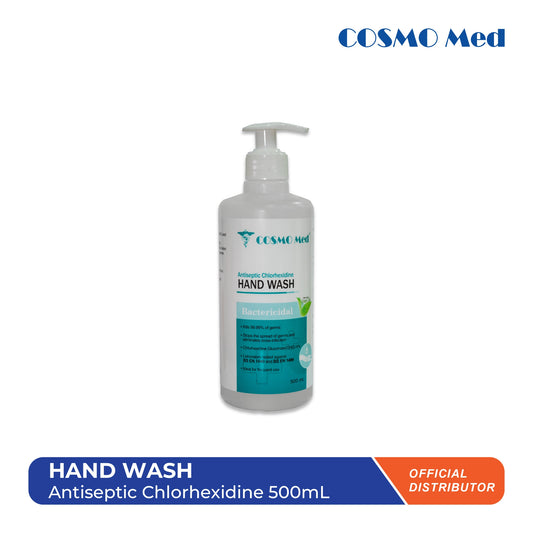

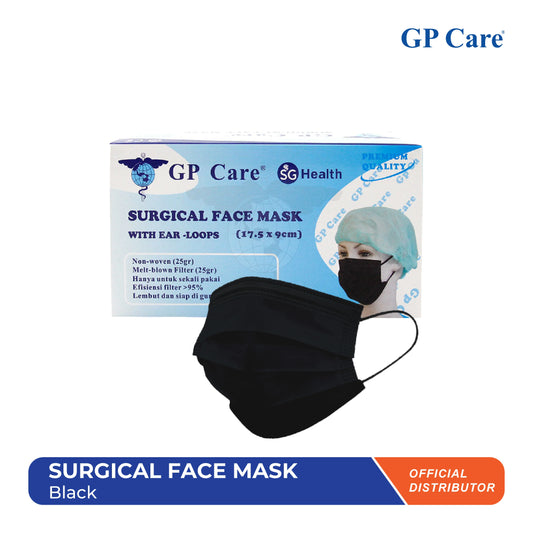
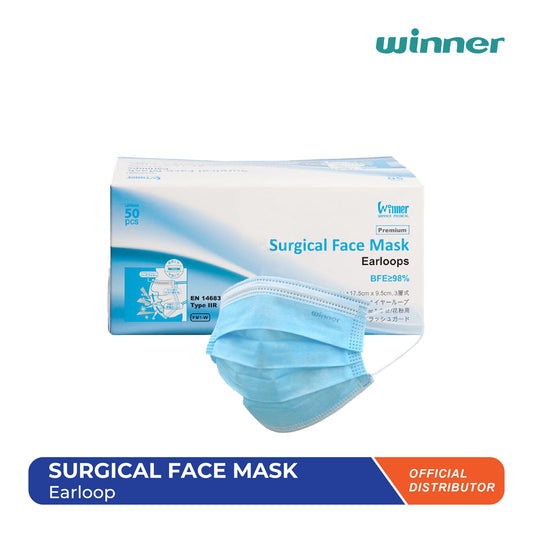
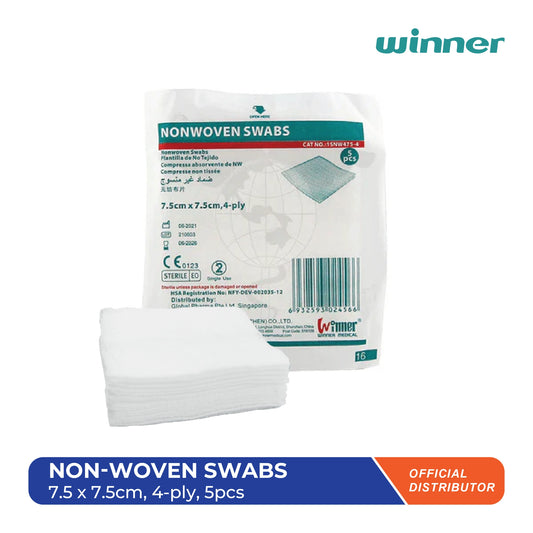
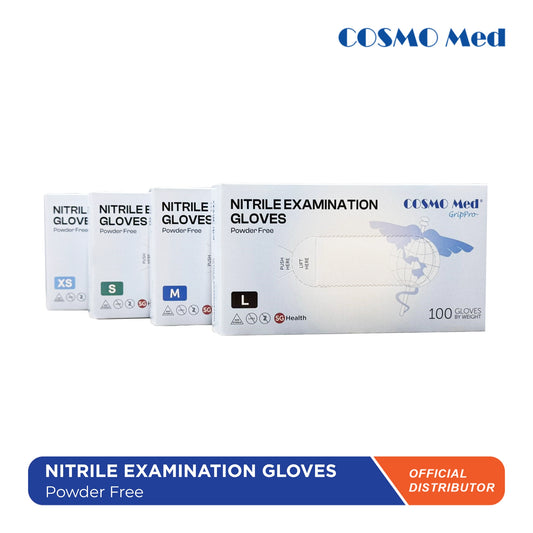
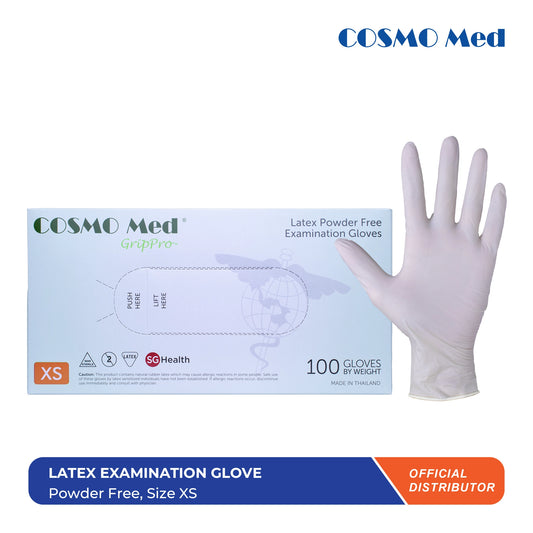
![Drainage / Urine Bag Rotatable Valve 2L (10pcs) - [IMPROVED]](http://www.gpmedline.com/cdn/shop/files/UB2R-Urine_Bag_Rotatable_Valve.webp?v=1753424792&width=533)
